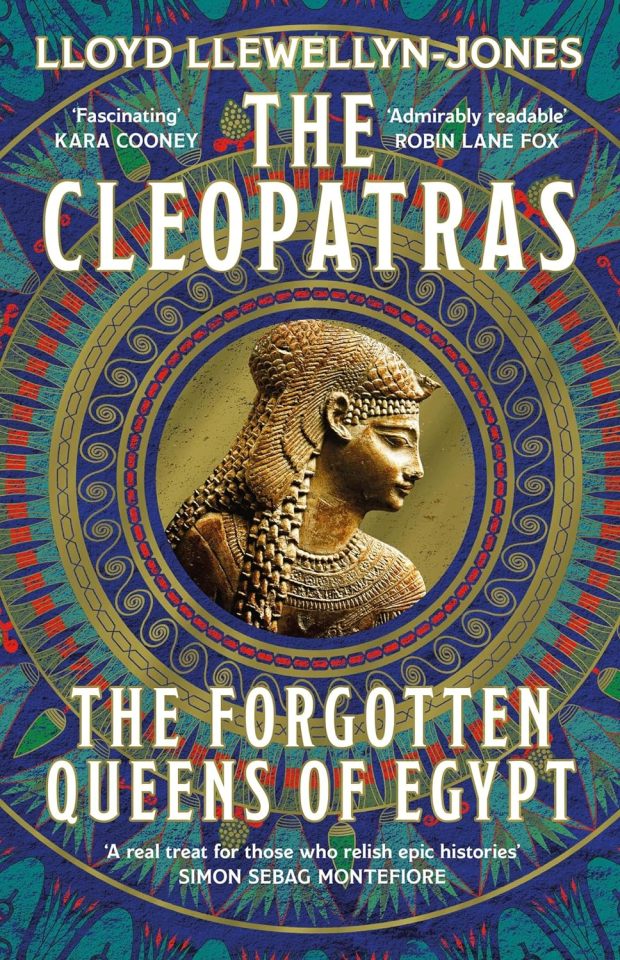Text
And Alexander Wept for Hephaistion....
If you don’t mind, I wanted to ask, you said something along the lines of: by the time Alexander was coming closer to his death, he had recovered from the grief of Hephaistion’s death (if I’m remembering this correctly; I’m so sorry I have a fuzzy memory) how long do you think he mourned Hephaistion?
------------------
This was an ask via message, so putting it here to reply publicly, as it may be of interest to others.
First, however, I want to mention a pair of articles I wrote many years ago now, but which are still valid:
“The Mourning of Alexander the Great,” Syllecta Classica 12 (2001), 98-145.
“Some New Thoughts on the Death of Alexander the Great,” with Eugene N. Borza (lead author), The Ancient World 31.1 (2000), 1-9. (I wrote the last 1/3 of it.)
The first, in particular, is an in-depth analysis of Alexander’s behavior after Hephaistion died. I’m still rather proud of it, as it brings together two quite diverse fields: bereavement + Alexander studies. If I had a critique for it now, it’s that I didn’t analyze the stories inherent in the primary sources, but that also wasn’t my intention in writing it. I specifically say that I do not plan to pick apart which reports of Alexander’s behavior are likely authentic and which aren’t. My goal was to evaluate all of them in terms of possible evidence of pathological bereavement, according to the (then) DSM III-R (et al.).
TL;DR version of the article: Alexander’s mourning was NORMAL and followed recognized patterns, if one allows for the loss of someone extremely close, a spouse/similar.
Yes, there were complicating factors. BUT he did not go crazy with grief.
Unfortunately, this article is far less known than the “An Atypical Affair” article on Alexander and Hephaistion’s relationship. That’s too bad, as the “His grieving was extreme!” persists among even some of my colleagues, never mind those outside the field of Macedoniasts. (It’s also admittedly possible that they were simply unconvinced by my arguments, but in that case, one usually cites and says so.)
If I could put a giant blinking neon light on one of my earlier articles to get it more attention, that would be the one I’d point to.
The second article—or my 1/3rd of it anyway—deals with the possible effects of deep mourning on the immune system of adult males of Alexander’s age group. Yes, according to some limited research, it does have an impact that increases susceptibility to infectious disease. Add his poor overall physical health after all those battles (and Macedonian-style symposial drinking), and he was just too spent to fight off the typhoid or malaria or whatever fever disease got him.
Ergo, he died roughly 8 months after Hephaistion. We don’t have a date for the latter’s death, but sometime in October or November of 324 BCE is the window. Alexander died June 10th, 323 … or possibly a day or so later if he were in a paralysis too deep for his breathing to be ascertained. (As per Gene’s part of the article.)
The dating is important, as it affects where he (probably) was in his mourning process.

Mourning follows a somewhat predictable pattern, and one of the biggest mistakes made by those unfamiliar with human mourning is to underestimate (often by a lot) just how long mourning takes … even perfectly normal, healthy mourning.
For a major loss, main mourning takes up to a year. No joke. That’s why bereavement counselors try to keep the bereaved from making any permanent decisions within that year. They’re still very much being buffeted by the winds of grief, even if they want to pretend they aren’t. But even after the year anniversary—and marking it with some sort of formal ceremony helps!*—mourning continues off-and-on (sometimes really intense for a few hours or even a few days) for up to 5 years. Again, no joke. Some bereavement studies experts don’t really consider a person truly recovered (note I never say “over it”) for as long as 10 years.
Additionally, ANY deep loss triggers mourning; it doesn’t have to be death. A divorce will result in mourning, even if the people in the marriage wanted to divorce. It’s still a “death” of sorts. Moving some distance away, graduation, and retirement can all set off mourning. This surprises people, that mourning can attach even to “happy” circumstances. Anything that includes an ending will set off mourning, albeit it may not be that intense.
But THE #1 and #2 most devastating losses are the loss of a child and the loss of a spouse/spouse-like figure. Period.
So, a slight correction to the question, I didn’t say he’d recovered from his mourning, but that he was beginning to emerge from the deepest parts of mourning.
What do I mean by that? There are (roughly) 3(-4) major phases of mourning. The speed at which we pass through these varies, dependent on the type of death and our closeness to the deceased. (The first article goes into that in more depth.)
Shock phase, which is typically anywhere from a few days to about 2 weeks.
Deep mourning phase, where the bereaved must come to terms with the loss. The bereaved cycles through a series of stages (not the best term) and, more importantly, struggles with certain TASKS of mourning (as per Worden). Again, the length of this phase can vary, but for serious losses, it can take up to 8-9 months, with the worst of it usually hitting 3-6 months. There is an intense focus on the deceased and the bereaved person may want little to do with new people and vacillate between wanting to talk a lot about the deceased or wanting to give away all their stuff because it’s too painful. Anger, bargaining, depression, self-blame … all are typical of this phase. It’s INTENSE. It really does take months, and people routinely underestimate it.
Re-emergent phase, where the bereaved begins to take an interest again in the external world, may make new friends and new plans that don’t involve the deceased. The deceased is far, far from forgotten, but the bereaved is learning to live without the dead person.
Continued bereavement would be a fourth phase past the one-year anniversary, where the bereaved will still experience grief, sometimes very intense when triggered by a particular memory, a birthday, or anniversaries. But the overall “worst” part of mourning is past.
Finally, especially in the deepest part of mourning, the depression felt by the bereaved is on par with clinical depression, but (except for rare cases) the bereaved absolutely should not take or be prescribed antidepressants as these interrupt the mourning process.
Yes, it hurts like hell but one can only go through, not over, around, or under. Through.
In some cases, however, bereavement becomes “complicated,” resulting in what’s referred to as pathological bereavement, by which I mean only not normal (I wouldn’t even say abnormal). Sudden death (as with Hephaistion) IS one factor that can complicate mourning, but it doesn’t necessarily lead to full-blown pathological grief. In the article, I evaluate all Alexander’s listed behaviors and explain why my final conclusion is that his bereavement was sharp, but not pathological.
Alexander’s behavior in the last few months showed aspects of the third phase. He was planning (or probably returning to planning) his next campaign and thinking about improvements to the city of Babylon apparently with the intention of making it his eastern capital. Yes, he was also planning Hephaistion’s funeral, but the other two things were new and show re-engagement.
So Alexander’s mourning had not ended before he died himself, only shifted. Even if he’d lived another 5 years, he’d still have experienced bereavement off and on.
Remember, grieving takes TIME. More time than you expect.
If you know someone going through grief, especially for a family member, beloved, or very close friend … give them space. Let them cry. Encourage them to talk about the lost person if they want to, but don’t force it if they don’t want to. Don’t argue with their theology/beliefs about death or their gallows humor, but also don’t shove your theology/beliefs about death, or your gallows humor, onto them. Read the room.
MOST OF ALL, JUST BE PRESENT. It matters less what you say than that you’re there. They may not even remember what you say later; they will remember you showed up.
—————-
* In fact, world cultures that have traditional, one-year anniversary ceremonies routinely show better outcomes for mourning individuals.
31 notes
·
View notes
Text
Published:"Chaeronea, 2 August 338 BC: A day that changed the world" Volume II: The Essays – Bilingual Edition
Happy Saturday and weekend, I’m Elena from Italy and thanks to be here on Alessandro III di Macedonia: your source about Alexander the Great and Hellenism! Today I’m happy to announce the release of a very particular book that will only be of interest to a niche of people.
“Chaeronea, 2 August 338 BC: A day that changed the world” Volume II: The Essays – Bilingual Edition
by Panagiotis P.…
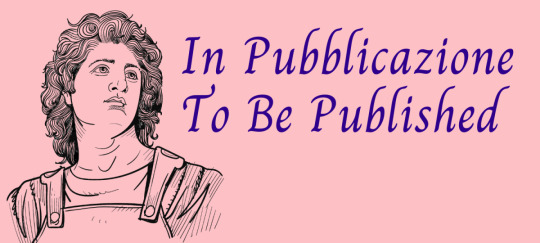
View On WordPress
0 notes
Text



#Panagiotis P. Iossif#alessandro magno#alessandro iii di macedonia#alexander the great#prossime uscite#alessandro il grande#alessandro il macedone#alexander the conqueror#alessandro il conquistatore#alexander iii of macedon#alexander of macedon#Museum of Cycladic Art#Ioannis D. Fappas#Chaeronea#Chaeronea 2 August 338 BC: A day that changed the world“ Volume II: The Essays – Bilingual Edition
0 notes
Text
Just published: "Legacy of the East and Legacy of Alexander" by Krzysztof Nawotka and Wojciechowska Agnieszka (Editors)
Good morning everyone, happy weekend, I’m Elena from Italy and thank you for being on Alessandro III di Macedonia- your source about Alexander the Great and Hellenism. Today I’d like to point out a book that I just discovered has been released and it’s one of those books that I absolutely must buy:
Legacy of the East and Legacy of Alexander
by Krzysztof Nawotka and Wojciechowska Agnieszka…

View On WordPress
#Alan B. Lloyd#Alexa Rickert#Chris Chism#Claudia Horst#Damien Agut-Labordère#Frances Pownal#Gościwit Malinowski#Harrassowitz Verlag#Ivan Ladynin#Joanna Porucznik#Joseph Roisman#Julian Degen#Krzysztof Nawotka#Melanie Wasmuth#Milinda Hoo#Nicholas Sekunda#Olga Kubica#Pierfrancesco Callieri#Richard Stoneman#Sabine Müller#Su Fang Ng#Tal Ilan#Timothy Howe#Wojciechowska Agnieszka#Łukasz Szeląg
0 notes
Text

#alessandro magno#alessandro iii di macedonia#alexander the great#prossime uscite#alessandro il grande#alessandro il macedone#alexander the conqueror#alessandro il conquistatore#alexander iii of macedon#alexander of macedon#Krzysztof Nawotka#Harrassowitz Verlag#Legacy of the East and Legacy of Alexander#Wojciechowska Agnieszka
1 note
·
View note
Text
Published by Fabricio Sales two introductory books on Alexander the Great and Cleopatra in available in six languages
Good day everyone, I’m Elena from Italy and thanks to be here on Alessandro III di Macedonia- your source about Alexander the Great and Hellenism.
Two self-published books about Alexander the Great and Cleopatra by the Spanish author, Fabricio Sales Silva, recently became available on Amazon via Amazon Kindle Direct Publishing platform and are available in six languages (English, German,…

View On WordPress
0 notes
Text
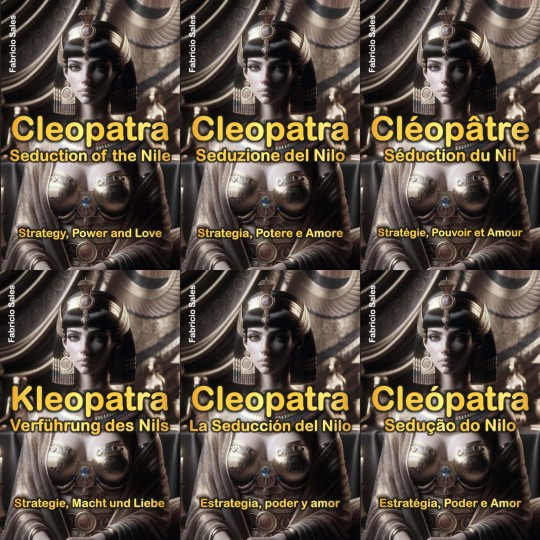


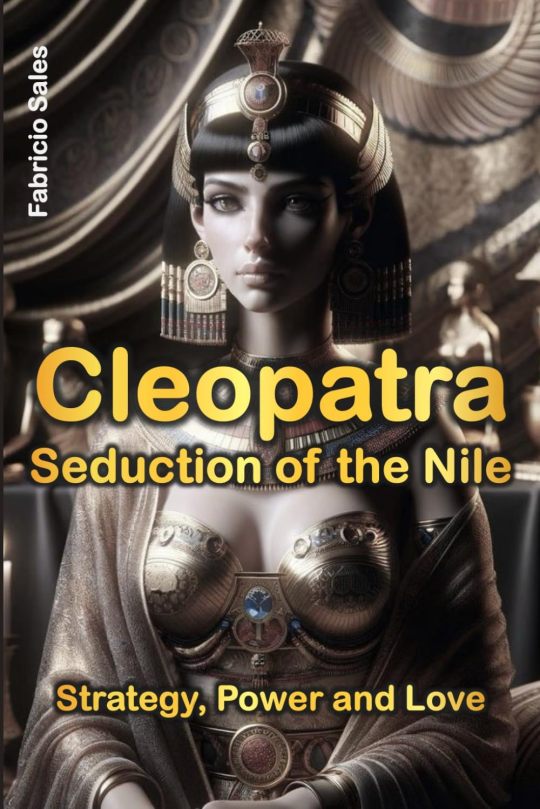

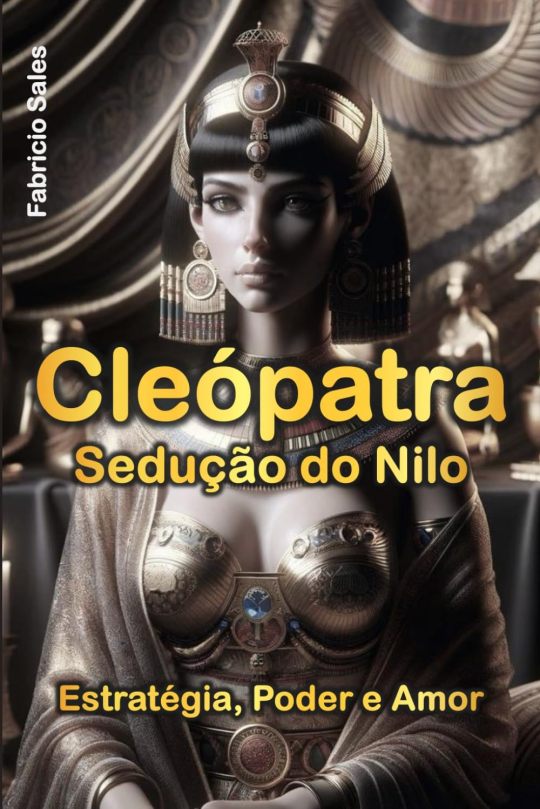

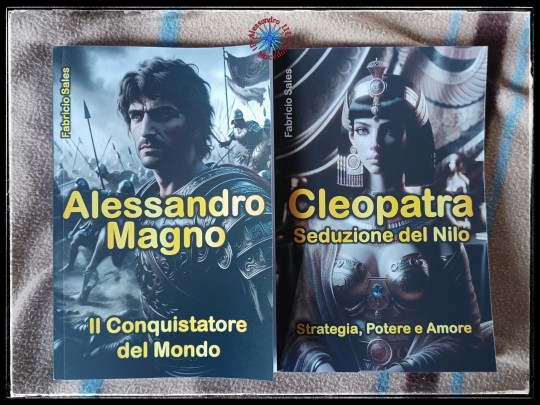
#alessandro magno#alessandro iii di macedonia#alexander the great#prossime uscite#alessandro il grande#alessandro il macedone#alexander the conqueror#alessandro il conquistatore#alexander iii of macedon#alexander of macedon#fabricio sales silva#fabricio sales
0 notes
Text

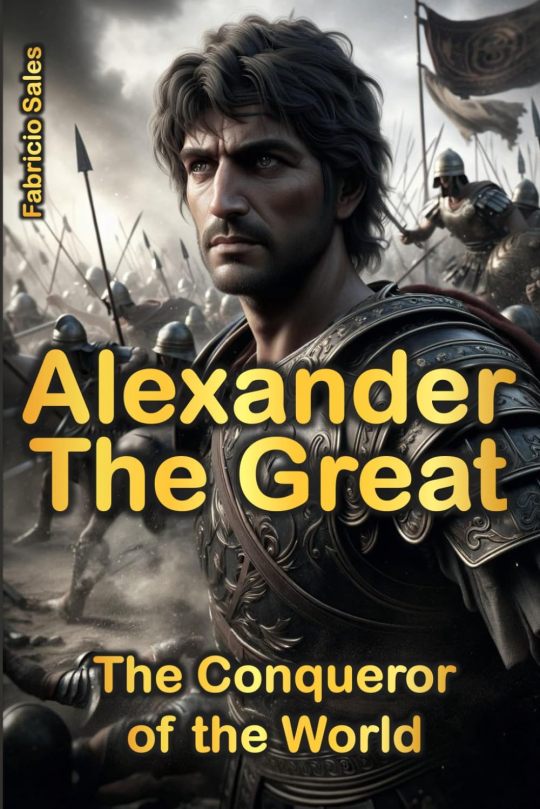





#alessandro magno#alessandro iii di macedonia#alexander the great#prossime uscite#alessandro il grande#alessandro il macedone#alexander the conqueror#alessandro il conquistatore#alexander iii of macedon#alexander of macedon#fabricio sales#fabricio sales silva
0 notes
Text
L'Eredità Weekend (Rai 1) stagione 2023-2024
PUNTATA DI: SABATO 6 APRILE 2024
Tra le materie del Triello conteso tra Riccardo, Salvatore e Dario c’è “Alessandro Magno” che viene scelto per terzo da Dario «Puntiamo sul Conquistatore, và. Alessandro Magno» che ha potuto scegliere il valore della domanda e quindi anche la quantità di risposte possibili. Dario sceglie il valore di 20.000 € con due opzioni di risposta:
Nella spedizione in Asia…

View On WordPress
0 notes
Text


#rai 1#l'eredità#marco liorni#alessandro il conquistatore#alessandro magno#alessandro iii di macedonia#alexander the great#alessandro il grande#alessandro il macedone#alexander the conqueror#alexander iii of macedon#alexander of macedon
1 note
·
View note
Text
Released at the beginning of the year: "Vidas de Alejandro. Dos relatos fabulosos" by Carlos García Gual
Good morning everyone, happy April and thanks for being on Alessandro III di Macedonia- your source for Alexander the Great and Hellenism.
I announce that yesterday I have started writing a booklet on Alexander the Great. It wasn’t planned because I was already reading something else for another future book, but the idea was sudden, it was born almost out of curiosity and now I want to see if I…

View On WordPress
0 notes
Text

#alessandro magno#alessandro iii di macedonia#alexander the great#prossime uscite#alessandro il grande#alessandro il macedone#alexander the conqueror#alessandro il conquistatore#alexander iii of macedon#alexander of macedon#Ediciones Siruela#Vidas de Alejandro#Pseudo Calístenes# Anónimo#Carlos García Gual#Carlos R. Méndez#Vida y hazañas de Alejandro Magno#Nacimiento#hazañas y muerte de Alejandro de Macedonia
0 notes
Text

E così, un po' per gioco, un po' per curiosità, ho iniziato a scrivere un libro imprevisto.
Su #AlessandroMagno.
Sarà un piccolo progetto che mi terrà occupata per un mesetto e poi vedremo cosa ne sarà. Non ho idea se e come vedrà la luce, ma tentare non nuoce e anche stavolta farò del mio meglio!
🤞 Buona Pasquetta,
Elena
PS: non è un pesce d'aprile ma è la pura verità.
@alessandroiiidimacedonia @lifeislikeawavewhorisesupanddown
#ElenaRagazzoni #IlTesoroèneiricordiDiariodiunamorefelino #ITÈNR #Iltesoroèneiricordi #AmazonKDP #AmazonKindleDirectPublishing #IndependentlyPublished
#pet #petloss #romanzo #libri #gatti #amorefelino #autoriemergenti #gattichepassione #autori #scrittori #autoreesordiente #animali #gatto #gattini #autore #autrice #scrittura #scrivere #Indie #write #catbook #imwriting
2 notes
·
View notes
Text
My first book “IL TESORO È NEI RICORDI. Diario di un amore felino” has finally been published!
Good evening everyone, I’m Elena and I thank you for being on my site Alessandro III di Macedonia- your source for Alexander the Great and Hellenism. Sorry for my absence but lately I’ve been busy on planning and publishing my first book Il tesoro è nei ricordi. Diario di un amore felino.
IL TESORO È NEI RICORDI. Diario di un amore felino
(Amazon Kindle Direct Publishing, 2024)
“Non puoi amare…

View On WordPress
0 notes
Text
Out in a couple of months: "The Cleopatras. The Forgotten Queens of Egypt" by Lloyd Llewellyn-Jones
Happy Sunday everyone, I’m Elena from Italy and thanks for reading Alessandro III di Macedonia- your source about Alexander the Great and Hellenism. Today I announce the release of a new non-fiction book. Pay attention because there will be different editions of this book with different publishers and dates.
The Cleopatras. The Forgotten Queens of Egypt
by Lloyd Llewellyn-Jones
Basic Books…
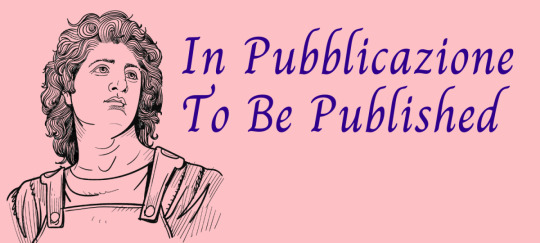
View On WordPress
0 notes

